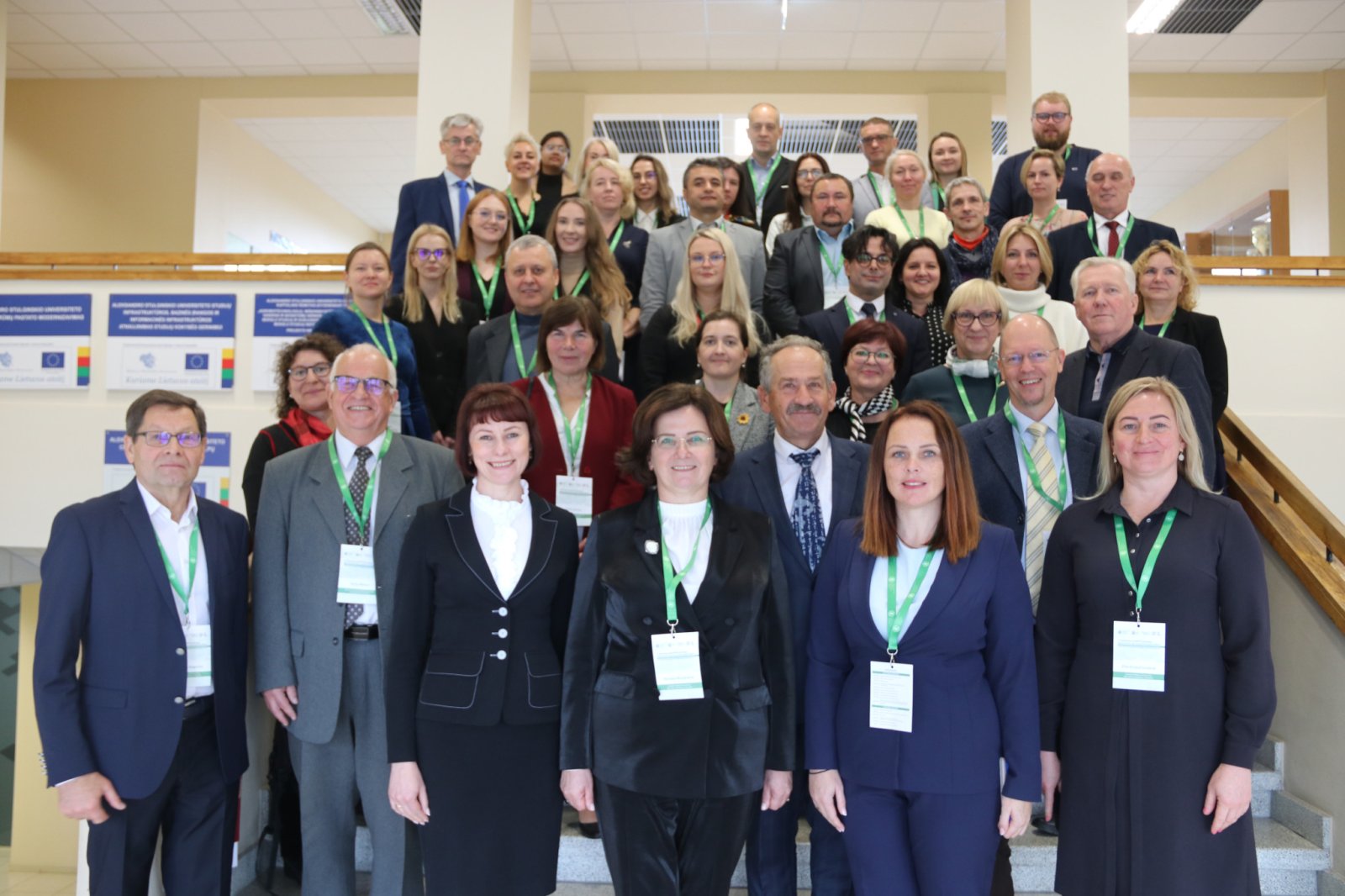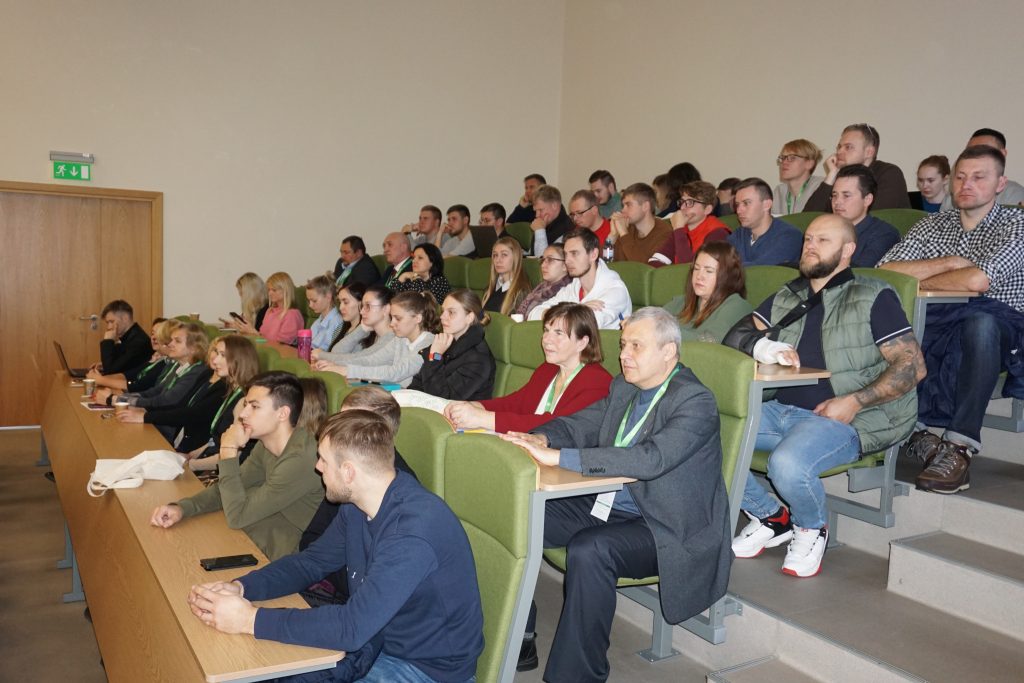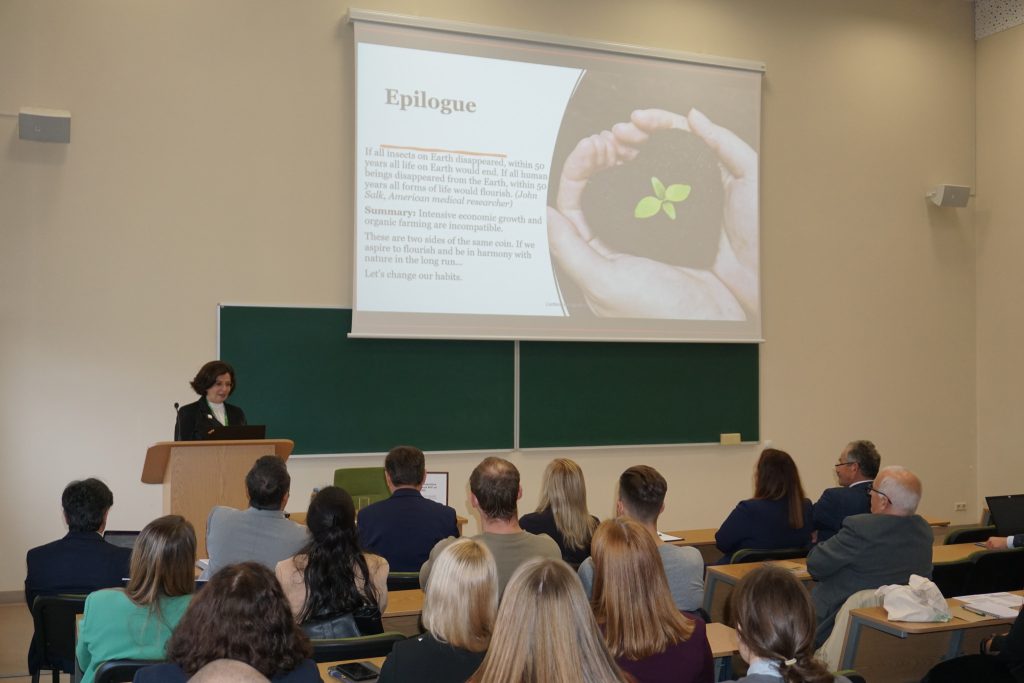Innovative ideas and solutions at the conference “AgroEco2022: Agroecosystem Sustainability: Links between Carbon Sequestration in Soils, Food Security and Climate Change”

On October 26-27, the 4th international scientific conference “AgroEco2022: Agroecosystem Sustainability: Links between Carbon Sequestration in Soils, Food Security and Climate Change” was held at the Vytautas Magnus University Agriculture Academy (VMU AA). The participants of the conference shared knowledge on topics relevant to the agro-sector – the focus was on the soil health and carbon sequestration for sustainability, soil and crop management towards a chemical pesticide-free agriculture, biodiversity, crop and production diversification, precision farming and digital technologies, food quality and safety, climate change mitigation.
Seeks to focus efforts on finding ways to reduce pesticide use
Welcoming the participants, the chairman of the conference organizing committee, researcher of the Faculty of Agronomy of VMU Agriculture Academy, assoc. prof. dr. Zita Kriaučiūnienė was happy that this time the conference was held not online, but in a regular format. “This year, about a hundred participants from different countries: Lithuania, Latvia, Estonia, Sweden, Poland, Germany, France, Spain, Ireland, Belgium, Turkey, Moldova, Brazil and others can meet and communicate in person. For researchers, this is a unique opportunity to exchange knowledge, make connections, and for our students – to learn from the leaders in the field”, – said dr. Z. Kriaučiūnienė.
Head of the Department of Agroecosystems and Soil Sciences, Faculty of Agronomy at VMU Agriculture Academy, prof. dr. Vaclovas Bogužas noticed that the conference, which is being organized for the fourth time, is characterized by an abundance of exceptional presentations and a great interest of scientists and students. “Sustainability of agroecosystems is a very relevant topic in today’s context, because, taking into account the Green Deal of the European Union (EU) and the Sustainable Development Goals of the United Nations, agriculture aims to reduce the use of pesticides and mineral fertilizers and maintain healthy soil. Many challenges arise in the implementation of these goals, scientists conduct research and look for the new solutions. This conference is a great opportunity to share research results and insights, to spread innovative ideas and to find solutions by pooling our strengths”, – dr. V. Bogužas emphasized the importance of the international conference.
The importance of research in finding relevant solutions
Emphasizing the relevance of the conference topics in the context of the EU Green Deal, chancellor of VMU Agriculture Academy prof. dr. Astrida Miceikienė pointed out that the topics are important for all states. “I am glad that scientists from different countries, institutions and different fields, who want to share knowledge, experience and cooperate in finding new solutions to global challenges, are participating in the conference. It is important to find the ways to achieve your goals with as little negative impact on the environment as possible. To illustrate this aspiration, it is worth sharing the idea of John Stalk, who states that if insects disappeared from the earth, the life of all the planet would disappear after the five decades, while if people disappeared, living nature would flourish just after the fifty years”, – said prof. dr. A. Miceikienė.
Kristina Simonaitytė, advisor to the Minister of Agriculture of the Republic of Lithuania, speaking on behalf of the minister, drew attention to the issue of ensuring food supply, which has gained special importance on the political agenda due to the ongoing war in Ukraine and its impact on agricultural supply chains. According to the representative of the ministry, it is very important not to forget the continuing trends of climate change and biodiversity loss, which pose an increasing threat to the security of global food supply chains.
According to the vice-president of the Lithuanian Academy of Sciences academician prof. habil. dr. Zenonas Dabkevičius, although much attention is now being paid to the issue of climate change, the agricultural sector faces not only the problem of climate change, but also the equally challenging rise in the prices of all resources. “We can abandon some elements of agrotechnology, but we need to know to what and how to replace them. Modern agriculture requires modern knowledge and abilities, and for this it is necessary to have recommendations and solutions based on scientific research”, – said prof. habil. dr. Z. Dabkevičius, pointing to the challenges faced by the agricultural sector and the expected recommendations of the scientists.
A unique opportunity to get acquainted with innovative scientific research
Dean of the Faculty of Agronomy at VMU Agriculture Academy, assoc. prof. dr. Aida Adamavičienė emphasized that this international conference is an exceptional opportunity for the academic community to get acquainted with the innovative research and results of the scientists looking for solutions to the challenges of the agro-ecosector.
“We are the ones who have to take care that the soil be healthy, and that people eat healthy food, that there is no hunger, that we ensure the smooth functioning of important areas, that is why this conference is especially important. We are glad that many high-level scientists, who are conducting research related to the globally relevant topics of the organic agro-sector, have arrived from various countries. Scientists, presenting reports and participating in discussions, openly shared their experience and research. They are the leaders, who can contribute to the initiation of the adoption of laws that are extremely important for agriculture and to the attraction and retention of the young generation of scientists in the field of scientific research”, – assoc. prof. dr. A. Adamavičienė summed up.

















